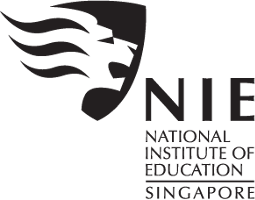Interested to learn more about the intricate customs of Malay kings? With the recent completion of a project by volunteers from the National Institute of Education to transliterate “Bahawa ini kitab adat segala raja-raja Melayu dalam segala negeri”, a Jawi manuscript dated 28 June 1837, now you can!
The Jawi manuscript had been copied by none other than Munshi Abdullah, the well-known linguist, author, scribe, secretary, interpreter and teacher to many British colonial officers including Sir Stamford Raffles. It reveals many fascinating details about the customs and ceremonies in Malay courts, with stories ranging from royal childbirths to royal funerals. Jawi is an adapted Arabic-Persian script and writing system used for writing the Malay language and several other Southeast Asian languages.
The project started in December 2018, when Dr Sa’eda Buang invited her present and former students to transliterate Jawi manuscripts into Romanised texts during their vacation, with a view to enhancing the theory-practice nexus of their Jawi reading and writing skills. The team of volunteers who responded to the call comprised Ms Aishah Nasyeera binte Rizdwan, Ms Farah Adibah binte Johari, Mr Khairil Bahri bin Kamal, Mr Luqmanul Hakim bin Ibrahim, Ms Nor Murniyanti binte Ali, Ms Nur Fadhillah binte Musa, Ms Rauhdah binte Abdul Latif, Ms Safiyah Salmi binte Othman, Ms Sakinah binte Mohamed Mohsen, Ms Siti Shahirah binte Samad, Ms Siti Nabilah Binte Romzi, Ms Siti Zubaidah binte Shaik Ibrahim and Ms Sukainah Binte Mohamed Mohsen.
The transliteration work heightened during the recent Circuit Breaker period, by which time, the volunteers had discovered that the transliteration of a 19th century manuscript with archaic terms and vocabulary, inconsistent spelling systems and an abundance of irregularities was no easy feat. Despite their commitments as student teachers and teachers in schools, the team finally completed their first transliteration of the 90-page manuscript under the supervision of Dr Sa’eda.
To mark the completion of the project, the team held a video conference on 5 June 2020 with Ms Tan Huism, the Director of National Library Singapore, who had supported the project. Ms Tan expressed her gratitude to the team for their efforts, which would benefit researchers and members of the public. She was especially heartened that there was still a group of youths who were interested in reading Jawi manuscripts.
The transliterated document will be converted into digital format and serve as an attachment to the original manuscript in National Library’s digital collection. Ms Tan said she hoped to see more members of the public using the Jawi resources available in the National Library, and looked forward to continually supporting the National Institute of Education team with the next phase of the project. The intention is to publish the finished transliterated work under the auspicious of the Malay Language and Culture Division of the Asian Languages and Cultures Academic Group.
Team Leader Ms Safiyah Salmi binte Othman told NIEWS that resilience, perseverance and passion had kept the volunteers going throughout their gruelling mission: “As the original manuscript was handwritten, reading it was not as simple as reading the standard typewritten Jawi texts. Furthermore, there were many terminologies specific to royal customs that are not quite common, and therefore the use of various dictionaries became necessary.”
Another team member, a Malay language teacher, added that it was great being able to work on something that she was passionate about outside the realm of teaching to keep her continually driven and motivated.
If you are able to read Jawi and appreciate the gems of the Malay world, why not join in this rewarding effort to discover the hidden treasures of the Jawi manuscripts? Those who are interested should contact Dr Sa’eda at saeda.buang@nie.edu.sg.




